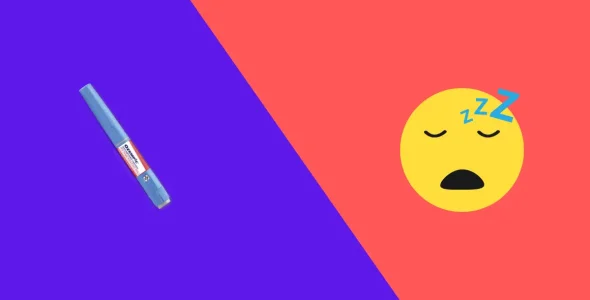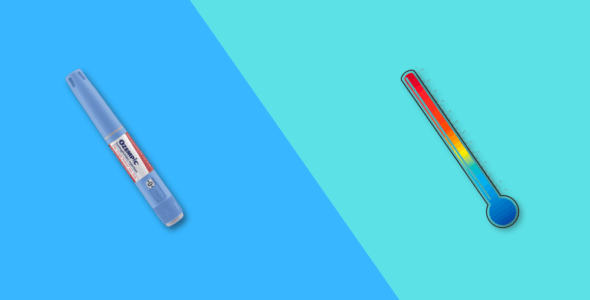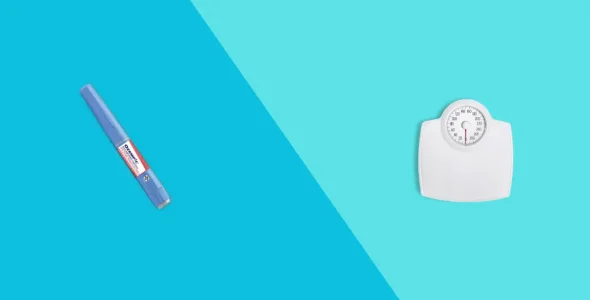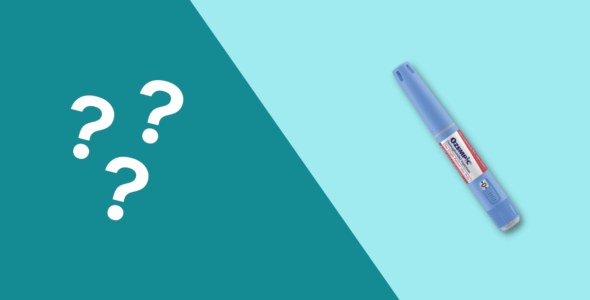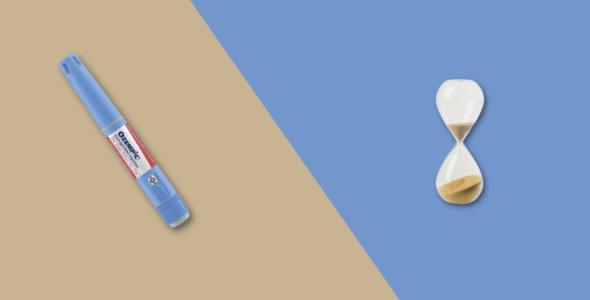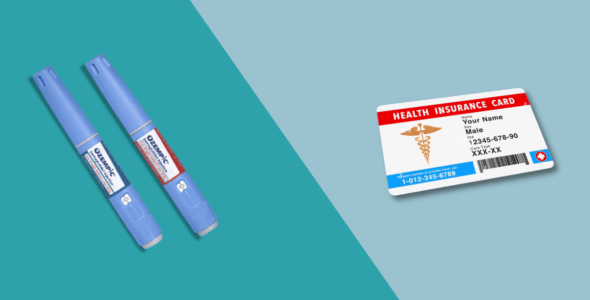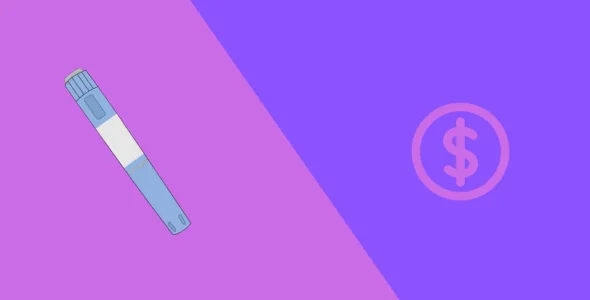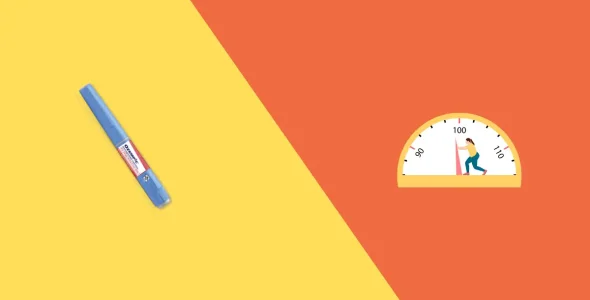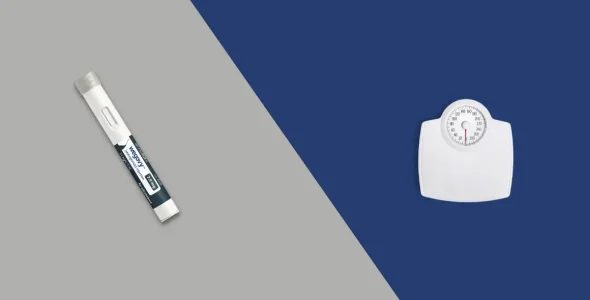What happens when you stop taking Ozempic?
Key highlights
- Ozempic (semaglutide) is a GLP-1 receptor agonist drug prescribed for type 2 diabetes and used off-label for weight loss.
- When you stop taking Ozempic, you will experience an increase in appetite and blood sugar levels, leading to weight gain and changes in cardiovascular markers.
- Your healthcare professional will likely suggest you maintain a healthy lifestyle, track your food intake (calories), and exercise regularly to avoid weight regain after stopping Ozempic.
- While most people will experience weight gain after they stop taking Ozempic, some research shows that you may still retain some heart-health benefits.
Ozempic (semaglutide) is an FDA-approved prescription drug for lowering blood sugar levels in patients with type 2 diabetes mellitus. Ozempic acts as a GLP-1 receptor agonist and signals the pancreas to produce more insulin. This drug also leads to weight loss by delaying stomach emptying and promoting satiety.
After stopping to take Ozempic, most people will regain most of the weight they initially lost and blood sugar levels increase which is especially dangerous for people with diabetes. You should speak with your healthcare provider before you stop taking Ozempic.
This article explains what happens to your body after you stop taking Ozempic to help you make the right decision and tips on how to safely stop taking the medication.
What can happen to your body after you stop taking Ozempic?
When you stop taking Ozempic, all the benefits of the medication will cease. You will experience fluctuations in your blood sugar levels and an increased appetite. As soon as you stop the use of glucagon-like peptide-1 (GLP-1) receptor agonists like Ozempic, your body metabolizes food at the normal rate instead of slowing down digestion and you feel hungry more often which leads to fast weight gain.
As a result, you will most likely regain most of the body weight you’ve lost when using Ozempic. Your blood sugar levels may also rise when stopping Ozempic. You may also experience an increased risk of cardiovascular health issues like heart attacks and stroke.
Ozempic withdrawal symptoms
When you stop taking Ozempic, you might feel changes in your body because your body gets used to weight loss drugs after months of use. Many people report withdrawal symptoms when stopping Ozempic. When you stop using Ozempic, you will notice an increased appetite even when you eat a lot. Diabetics may also notice a dangerous increase in blood sugar levels (hyperglycemia) which can lead to symptoms that include:
- Nausea or vomiting
- Excessive thirst (polydipsia)
- Excessive urination (polyuria)
- Blurred vision
- Sweet-smelling breath (a sign of ketoacidosis)
Stopping the medication may also stop the common gastrointestinal-related side effects associated with Ozempic like diarrhea, nausea, constipation, joint and muscle pain, headaches, or stomach pain. It can also reverse other potential side effects such as “Ozempic Face”.
Long-term side effects
Data from Novo Nordisk’s STEP 1 trial extension show that most people experience weight gain when they stop taking Ozempic. Stopping the use of weight loss drugs may lead to an increase in appetite and blood sugar levels (hyperglycemia).
Increased appetite
Semaglutide is the active ingredient in Ozempic. It mimics GLP-1 hormones that regulate blood glucose, decrease gastric mobility, and improve the cardiovascular system. When you stop Ozempic suddenly, the effects of the drug on your metabolic system wear down and your body starts digesting food the same way it did before Ozempic. Your full appetite comes back with a higher calorie intake.
Weight gain
When you stop taking Ozempic, your body metabolizes the food faster, leading to an increased appetite. Eventually, you eat more and gain weight.
The STEP 1 clinical trial extension showed that people who stopped semaglutide gained back two-thirds of the body weight they had initially lost with a net weight loss of around 5% from before starting semaglutide. The study reported that the people who lost the most weight on Ozempic also gained the most weight after stopping semaglutide.
In the STEP 4 randomized clinical trial, around 800 people received semaglutide along with dietary adjustments. The participants lost 11% of their weight on average in four months. However, one-third of the participants received a placebo for another year and gained 7% of the lost weight. It shows that people who did not take semaglutide continuously gained back most of their weight.
Heart health
Ozempic has been seen to improve weight-related conditions like cholesterol, high blood pressure, and heart diseases in addition to type 2 diabetes. A double-blind, randomized, placebo-controlled study showed a positive effect of semaglutide in reducing the incidence of a composite of death from cardiovascular causes, nonfatal stroke, and nonfatal myocardial infarction.
The STEP 1 trial extension also studied the effect of Ozempic use on heart health. Although most people gained weight after stopping Ozempic, the study showed improvements in most cholesterol tests and an improvement in CRP, a blood test for inflammation.
At the same time, the blood pressure of patients returned to pre-Ozempic levels after stopping the medication.
Blood sugar
As Ozempic is used to control blood sugar levels by stimulating the release of insulin, stopping the medication causes hyperglycemia, an increase in blood sugar.
Blood sugar returns to near baseline levels in diabetics who stop taking Ozempic. 43% of people who had prediabetes when starting Ozempic were able to keep their blood sugar at normal levels after stopping semaglutide.
How to stop taking Ozempic
Ozempic has shown promising results in type 2 diabetes mellitus along with weight loss. However, some side effects of Ozempic can be unpleasant. Speak to your healthcare provider about reducing the dosage to help with possible side effects. If you are having difficulties accessing Ozempic due to drug shortages, speak to your healthcare provider about possible alternative medications. If you are unable to afford the high cost of Ozempic, the manufacturer provides free Ozempic to eligible patients through the Novo Nordisk Patient Assistance program.
If you want to stop taking the medication, you should take measures to prevent withdrawal symptoms and long-term side effects. This is especially important for people with diabetes, prediabetes, heart disease, high cholesterol, and high blood pressure.
Consult with your healthcare provider and consider the following when you want to stop Ozempic:
- Enroll in a nutrition education program to understand how to manage food cravings.
- Have a dietary plan in place to manage your calorie intake efficiently.
- Recent studies have shown that exercising regularly can help reduce weight regain after stopping the medication.
- Talk to your healthcare provider for an alternative type 2 diabetes medication. You can also ask for a weight management drug recommendation if needed.
If you have diabetes, your healthcare provider may suggest tapering off Ozempic slowly to avoid sudden withdrawal symptoms and help to make sure you are taking the correct medication to control your blood sugar levels.
How to prevent weight gain after stopping Ozempic
Weight gain is one of the primary concerns when you stop taking Ozempic. Most people gain at least some of the body weight they had lost with Ozempic so it’s best to talk to your doctor before you stop taking Ozempic.
- Your healthcare provider might suggest an Ozempic alternative like Wegovy, Zepbound, or Saxenda. These drugs are approved by the FDA for weight loss in obesity and overweight.
- If you’re taking Ozempic for type 2 diabetes mellitus, the doctor will prescribe another medication like Mounjaro or Victoza to regulate your blood sugar levels.
- Maintain a healthy diet to combat food cravings and an increased appetite. Exercising regularly will also help keep your weight under control.
- Drink water throughout the day to feel fuller without eating too much.
Frequently asked questions
Can I stop taking Ozempic when I reach my weight goal?
Though you can stop taking Ozempic when you reach your weight goal, you must consider the withdrawal symptoms including weight gain and increased blood sugar levels. Talk to your healthcare professional who can help create a suitable treatment plan.
Do you need to take Ozempic forever?
Ozempic is not meant for short-term use, but you do not have to take it forever. If you’re not happy with the results or want to stop taking Ozempic because of the side effects, ask your healthcare professional about other treatment options for weight loss or type 2 diabetes. Patients with type 2 diabetes must consult their doctor and not stop Ozempic suddenly.
Do you eventually stop losing weight on Ozempic?
Ozempic is used as a weight loss and weight management drug. Sometimes, people lose weight gradually over months at an almost consistent rate. At the same time, others lose weight quickly in the first few months, followed by a plateau in weight loss. However, the drug helps maintain weight by mimicking incretin hormones. The weight loss will also depend on your calorie intake and physical exercise. The dosage strength can also affect the amount of weight you lose.
RELATED: Why am I not losing weight on Ozempic?
What is the worst side effect of Ozempic?
Everyone responds to medication differently and the ‘worst side effect’ may vary from person to person. Some people find nausea and other gastrointestinal-related side effects annoying, whereas others are tired of injection site reactions. Most of the gastrointestinal-related side effects should improve after taking Ozempic for a few weeks while your body gets used to the medication.
Hypoglycemia, pancreatitis, and gallbladder disease are among the most serious Ozempic side effects. The medication also has a boxed warning for the risk of thyroid C-cell tumors; they have not been reported in humans yet, but rodent studies have shown evidence.
However, it’s important to remember that every person might not experience all these side effects.
Bottom line
Ozempic (semaglutide) is a prescription drug approved by the U.S. Food and Drug Administration for type 2 diabetes. It is also used off-label to lose weight. When you stop taking Ozempic, you will experience a sudden increase in appetite and blood glucose levels.
Many patients regain most of the lost weight after stopping Ozempic. Adequate lifestyle changes and being mindful of your calorie intake can help prevent weight gain when you stop Ozempic. People with diabetes should never stop taking Ozempic suddenly to avoid the risk of spiking blood sugar levels and need to consult with their healthcare provider. You can ask your healthcare professional to consider alternative medications for type 2 diabetes or weight management.




